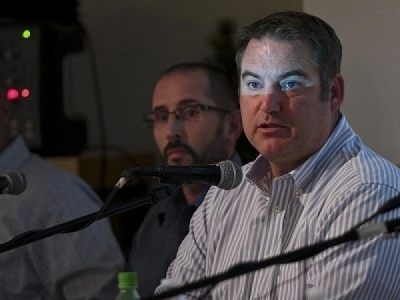
Posted on May 22, 2018
An ambitious proposal to build an island city on Utah Lake to help stymie toxic algae blooms that plague the water got a boost from Utah lawmakers this year, but not everyone thinks it’s a good idea.
Developer Lake Restorations Inc. has proposed funding multiple conservation and restoration efforts on the lake through islands in the lake that people could live on, the Daily Herald reported Wednesday.
“It will transform the lake from an impaired, nutrient-loaded waterway, dominated by invasive species and prone to algal blooms, into a clear-water state lake with thousands of acres of restored native submerged plant zones, millions of June sucker, Bonneville cutthroat trout, and native fish species,” the proposal says.
Lake Restorations’ idea includes a $2 billion dredging project to remove nutrient-rich sediments that algal blooms depend on as well as deepening the lake.
The proposal was an idea that has been in the works for about a decade, said Todd Parker, with Lake Restorations Inc. The group is currently working through both federal and state processes in hope of bring their idea to life.
Ben Abbott, a Brigham Young University professor who studies ecosystems around the world and how humans affect them, spoke against the proposal at the Orem Public Library during a recent panel sponsored by the Utah Valley Earth Forum.
“To be frank, I was quite alarmed at the scale of the project, and the claims that were made in the proposal, which didn’t seem to me to be based in what we know ecologically not only about Utah Lake but in many other systems where we’ve tried large-scale engineering interventions,” Abbott said.
While he appreciated many of the concepts in the proposal, Andrew Follett, a student at Utah Valley University, said he was skeptical of the ideas of adding residences on the lake when many of the problems were caused by increased urbanization and human population pressures.
The proposals may be scientifically valid and sound, but “because these are paired with sharp increase in urban lake interface, it seems it becomes counterintuitive if not to some degree paradoxical,” Follett said.
He encouraged the public to join him in questioning the project.
Source: Hastings Tribune





